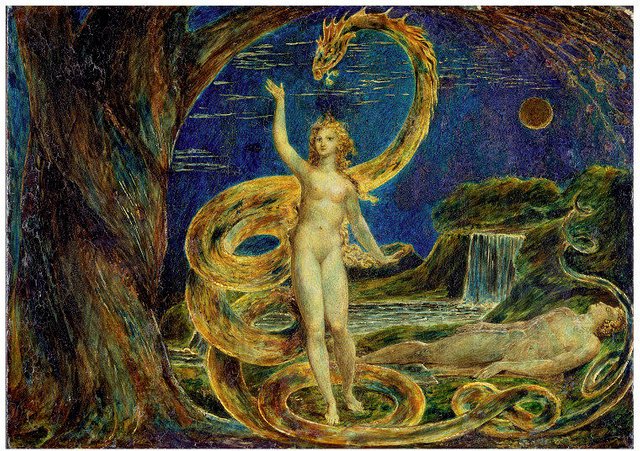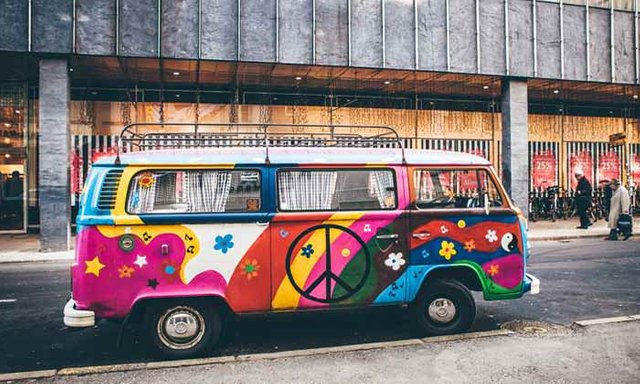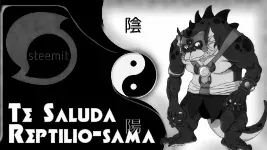IMAGINATIVE FREEDOM OF CHOICE - THE UNCERTAINTY OF THE PRESENT - CHAPTER V

In order not to give a historical account of the formation of the State from the Enlightenment to the present day, let us take a historical position on the basis of the governments of Thatcher and Reagan.
Neoliberalism and the transnationals, in common agreement or supported by the International Monetary Fund and the World Bank, establish a number of rules for developing countries, in order to consolidate a process that has been gradually growing, which is globalization.
This creates a process of duplicity in the individual: on the one hand, he is a citizen before the State and, on the other hand, he is a consumer before the market. Of course, making the difference between being a consumer in the developed world and what could be consumed in a impoverished country, where, at the end of the day, consumption is affordability of water sources.
In this duplicity, the individual as a consumer feels that the market opens up a perspective of freedom, freedom of choice in the end or freedom of choice or consumption.
Then, we find an individual who lives on the one hand, who imaginatively lives the freedom of choice, but, on the other hand, as a citizen is subject to a weakening state.
When globalization imposed the sale of state enterprises to private companies, the process of deterioration began in the free provision of basic services by the State; in certain countries, social security was not enjoyed; now, insurance had to be provided on one's own account and citizens (who enjoyed tacit provision of services by the State) had to be provided to consumers, including their own insurance, to name just one case.
Thus, as a consumer, we have three instances: on the one hand, we have the freedom of selective choice of goods and services.
On the other hand, you must repress yourself to a free choice of these, because you can not enter the department store and take what you want, because you must pay for it and not have what with.
And he is subject to a third trial, in this case of repression by the State, because, if he takes what he wants, he has to go to prison for being a thief.
Thus, of the full freedom of choice, thanks to the awakening of their desires by the market, our subject is constrained in his margins of consumption by his own availability for it, and by the threat of the deprivation of freedom, in case of carrying out the consummation of his desire, for not mediating the payment of the same ones.
Nevertheless, we find a split individual who considers that freedom is more a matter for the market than for the State.
But with a very big contradiction, because what we see recently is more like the expansion of the sphere of rights. That is to say, democracy, as a space above all for the enjoyment of rights or the exercise of citizens' rights, has become ever greater.
Now it's not just about political rights, but about this whole history of social rights. Even private life has become an object of legal regulation. Then, everything you do in the private sphere can also be conceived in terms of the enjoyment of rights that the State or society guarantees you, which is extremely confusing because what it is about is the separation or confusion between the public and the private, but with a juridization.
So, since you are a bearer of more and more rights, your relationship with consumption does not depend so much on freedoms in the sense of what is called negative freedom, in the sense of what is called negative freedom, in the sense of acting without interference, but the other way around: that space has been reduced and what has been expanded is that space of positive freedom, in the sense of what you can do, because you are a bearer of rights.
I think it has to do with a kind of redefinition of the concept of State. The state no longer functions as a neutral balance that simply balances adversity, the pluralism of citizens, the pluralism of choices or lifestyles of a society, but rather becomes a great ruler of public life with models that involve a series of legal and even political, and often simply moral, interventions on private lives.
States have become more powerful in the sense of becoming rights givers, rights guarantees that are increasingly infinite, it turns out that when what is a duty becomes a right, the qualification of that action changes completely.
I think the state has taken advantage of society to regulate more. We would have to think about what kind of societies these are that are increasingly demanding regulatory action.
Obviously the ultimate regulation comes from the state, but the curious thing here is that we are living through a time of enormous transition.
The whole philosophy of postmodernity failed to say that
we had surpassed the values of modernity
What are the values? The individual, the state, society, the rules, the problem of freedom. We live with the values of modernity, but a modernity that no longer defines itself as a summit moment, as a moment of exaltation, an epochal moment.

In short, what it is showing is that we no longer know how to live in accordance with our own values. In other words, we have them the same, they are still the same, but we no longer know how to live like this, our practices go the other way and we don't know how to think about them any other way. So, we are trapped in a world of new practices that are evidently drilling and moving all the foundations of this modernity, but we do not have a world of values that fits those new practices.
We come from times of disappointment, from the'60s to the present
There was in fact an attempt to resize in quotation marks, with all the euphemism that this means, the role of the State in societies. But not as an ideological objective, but as a kind of technocratic eagerness: to turn the management of societies, which is up to the States, into more or less predictable and technical mechanisms, rather than into political situations or procedures.
So that's where that kind of political blurring comes in. We are beginning to consider the possibility of managing societies, without considering that politics is always there, because politics is, let's say, the alpha and omega of conflict and human conflict is always going to be there.
What they call neoliberalism or the Washington Consensus ended up believing almost in the Marxist utopia of a society without conflict.
We have already reached a kind of plain that threatens even the liberal principles themselves, and that is why I do not believe that it has been basically a question of neoliberalism, because the axiom on which the idea of modern liberalism works is the idea of pluralism, of differences and, therefore, of conflicts.
There were a number of elements that had to do with measures that actually reduced State action in certain areas, particularly the economic sphere, but at the same time there was a kind of technocratic impetus. The utopian fantasy that we are going to reduce the scope of human conflict to a kind of perpetual peace and then we will be happy and what we have left is carpentry, social engineering.
Then the prevalence of the market emerges, because given the discredit of the political, therefore of the handling of the public (and the role of corruption in its discredit is not negligible), and the emergence of the managerial as a paradigm of efficiency (and the managerial refers to the technocratic), and when this phenomenon is erected as a functional exaltation of the times, on the one hand, and on the other hand because it is the engine of the production of dazzling goods and services as objects of consumption, the market wins a battle against an inefficient State.
And here are two things dear friends. First, the issue that the market is complicated because we tend to associate the idea of satisfaction with the idea of need and, in reality, needs have nothing to do with the market.
That is to say, what is never satisfied are needs, because we do not know what that is, we do not know what is necessary, we do not think of our life in terms of what is necessary, but we think of it in terms of the superfluous, permanently.
Therefore, the concept of need varies fundamentally and the market operates simply on the basis of desire rather than need.
What makes it impenetrable, and that no system in the 20th century has been able to attack market practices, is that it is aimed at the satisfaction of desire, and that is undoubtedly the most humane thing there is, the deepest thing.
So, we are subject to some collective logics, but for which nobody can be held responsible, because precisely because they are collective they are also impersonal and this causes great anguish from the political point of view, when you look at the crises of the political struggle that was generated in the twentieth century: fascism, communism, and market economies, what you find there is a great discussion, not explicit, but very profound, about how much the societies are going to allow the desires to be manifested, to materialize, to expand.
The big question is, what is freedom? Is this precisely what it is about? Are we going to allow desires to organize the world or are we going to organize the world and give it the space that we rationally consider should have the satisfaction of desires? Deep down, it's the big drama.
But, in a consumer society, is man free to desire or is he induced to desire certain options? He wants wildly and he wants the most incredible things. I mean, the wish list is by definition infinite. In other words, the interesting thing about desire is that it is infinite, uncollectible, there is always dissatisfaction. That is why the market economy triumphs over socialism.
Socialism is not that it forces you to have a reality full of hardships, because in capitalism you can also have them, what happens is that it denies you the possibility of thinking about a different reality, of wanting it. I mean, it keeps you from wishing, it's built so you don't want it anymore. So, that is fatal to any system or collective order.
Let's say that the market has ideologically succeeded and in fact penetrated into politics. In other words, advertising, which is what fundamentally makes us recreate and increase our desires, has expanded to such an extent that the political is permeated by the advertising.
"Freedom means that you are not forbidden
to live your life as you choose.
Something minor is a form of slavery."
Wayne Dyer.
Previous Articles
UNCERTAINTY OF PRESENT - CHAPTER I - WHAT IS THE SENSE OF CONSUMPTION?
THE UNCERTAINTY OF PRESENT - CHAPTER II - THE NEED TO BE VALUED
THE UNCERTAINTY OF THE PRESENT - CHAPTER III - ABSTRACTION NOT PAINFUL TO WAR
SOCIAL PROPENSION TO THE CONFESSIONAL - THE UNCERTAINTY OF THE PRESENT - CHAPTER IV
I Am the One I Am - I Am My Teacher
Instagram | Facebook | Linkedin
Friday, June 8, 2018
Alberto J. Tang H.
Hi! This is jlk.news intelligent bot. I just upvoted your post based on my criteria for quality. Keep on writing nice posts on Steemit and follow me @jlkreiss to get premium world news updates round the clock! 🦄🦄🦄
Nice post
